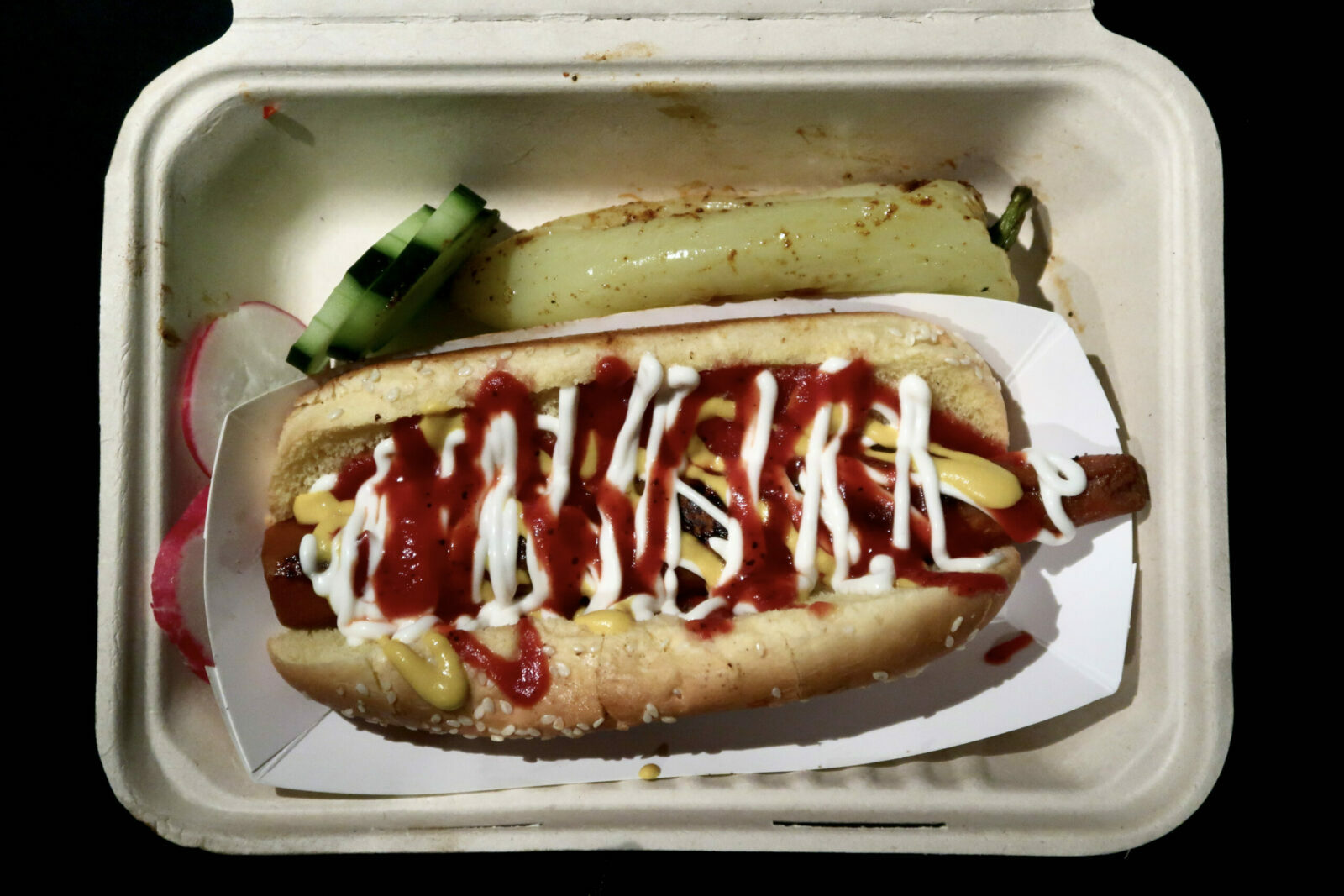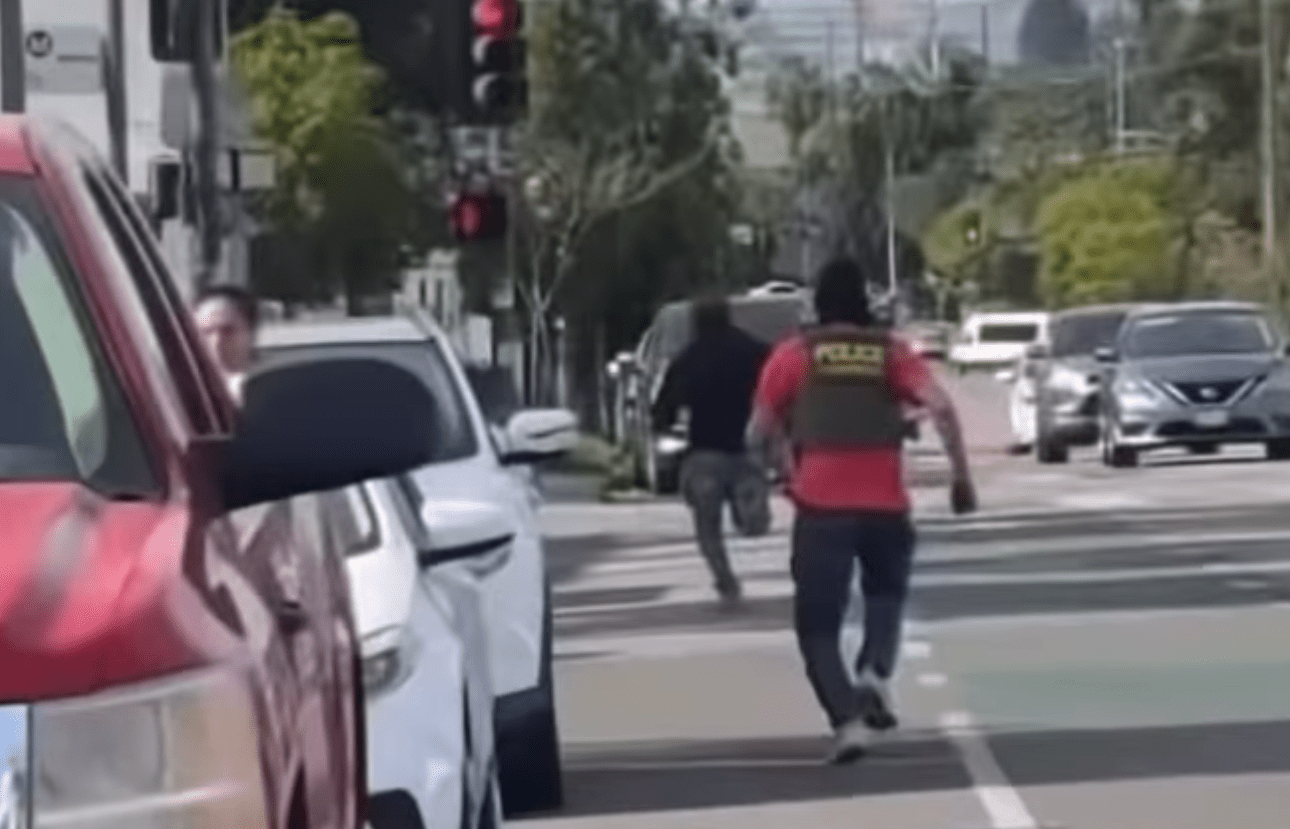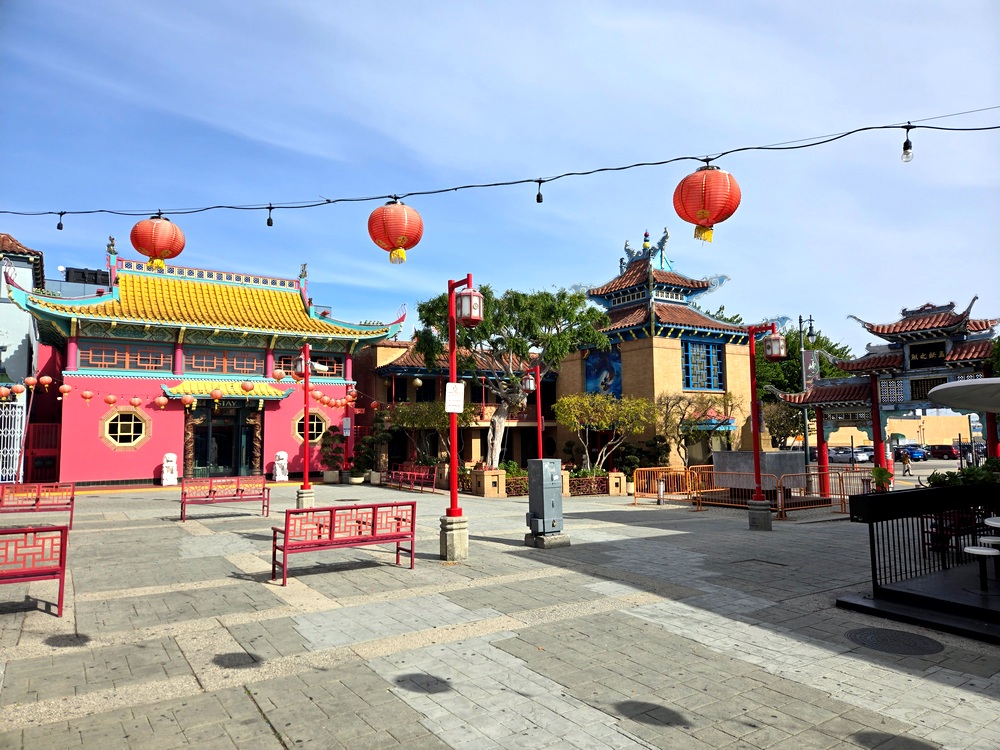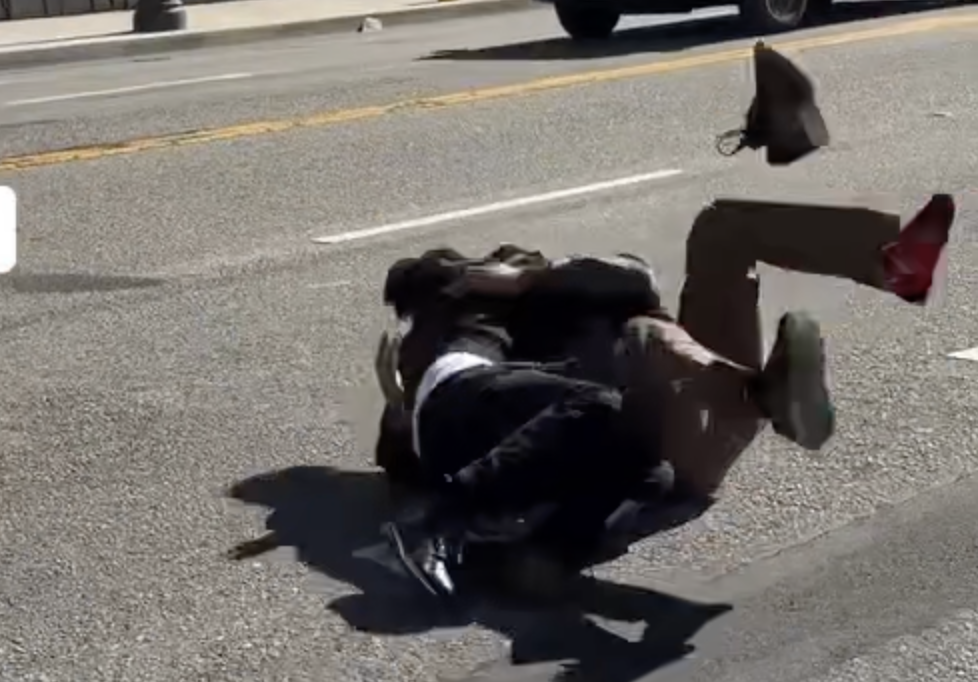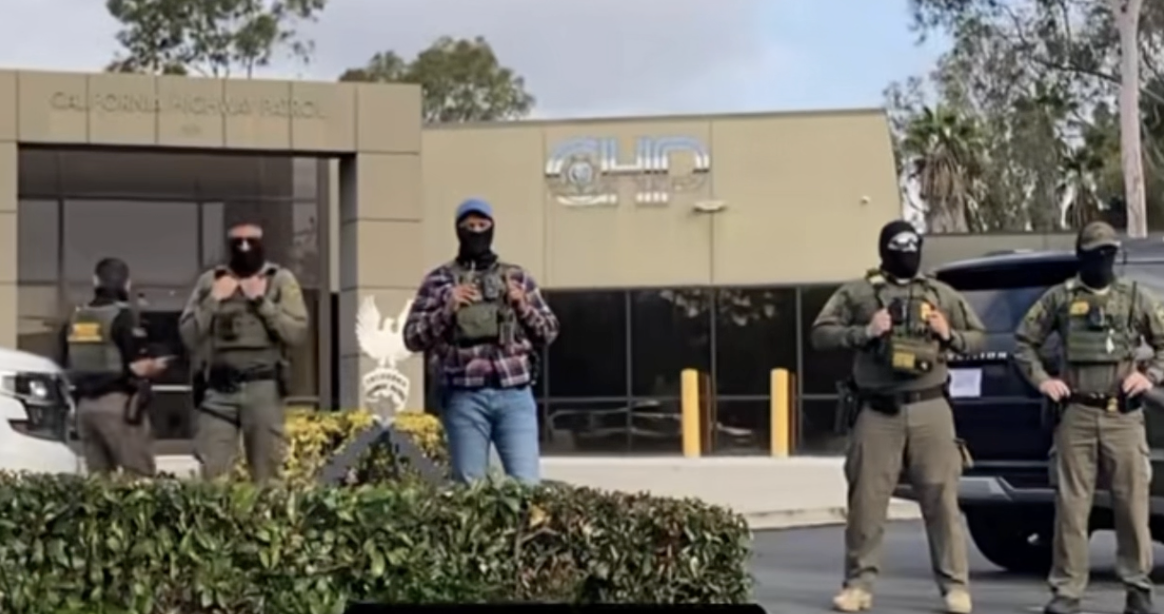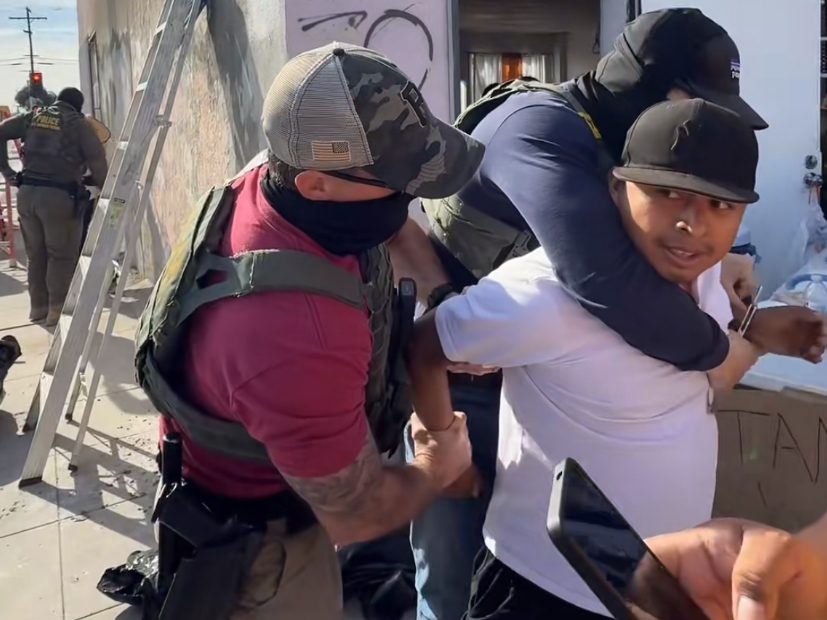[dropcap size=big]M[/dropcap]asaya is a play-on-words that mean to go “beyond.” Joaquin Flores, native Angelino, and first-generation Chicano seek to do just that––through plant-based street tacos and carrot hot dogs.
Some of you may already be familiar with Flores, as he’s worked alongside his family on the vegan pop-up, Tacos Sin Karma, since 2016. His family founded Sin Karma to directly address the lack of plant-based options in their community of El Sereno, where they lived when they first went vegan.
“There’s only so many times you can have taco de papa at family gatherings,” he tells us during our phone interview.
Flores divided his time between family, school, and Sin Karma until the urge to start his venture began to pull him in a different direction. He was getting ready to pop-up at farmers markets through the support of SEE-LA––which is where he met Paola Guasp of Amara Kitchen, where Flores is currently in residency––and had just finished his final exams for his masters in education when the pandemic hit. It became a defining moment for him to reflect on his mission with his new venture.
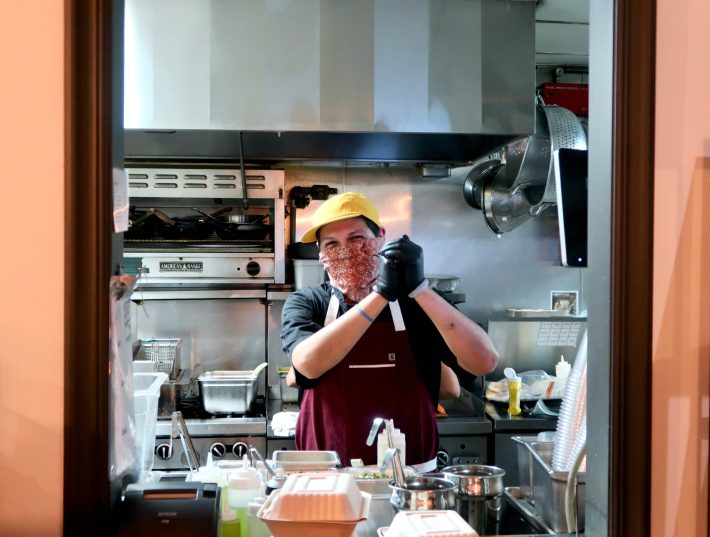
“The pandemic really forced me to continue to introspect on what I really wanted to do with this project and how I wanted to manifest it,” Flores explains.
What emerged is a concept that mirrors who Flores is: a first-generation Chicano with Latino influence and the multi-cultural experience that is Los Angeles embedded in his being. He aims for what unifies us as eaters through a lens of health and nostalgia that is uniquely his and builds bridges through cultures.
He was so inspired by the carrot dog’s potential to open up people to plant-based eating that he jokes Masaya as a concept practically came from the carrot dog’s inception.
“It’s those similarities and patterns of likeness,” Flores says, “That point to something that’s beyond culture, or language, or region, it points to something outside, much more connected to the human experience.” This idea of universality comes together with precision and care in his hot dogs, which star carrots instead of a vegan meat substitute. Flores says he can’t remember a good time that wasn’t punctuated with late-night hot dogs, getting a waft of fresh peppers and onions from a near-by street hot dog cart.
“That’s really part of L.A. culture,” he reminisces. “I wanted to throw the hot dog in there because it’s a really L.A. thing but also a Latino thing and beyond. That’s why it’s mas alla.”
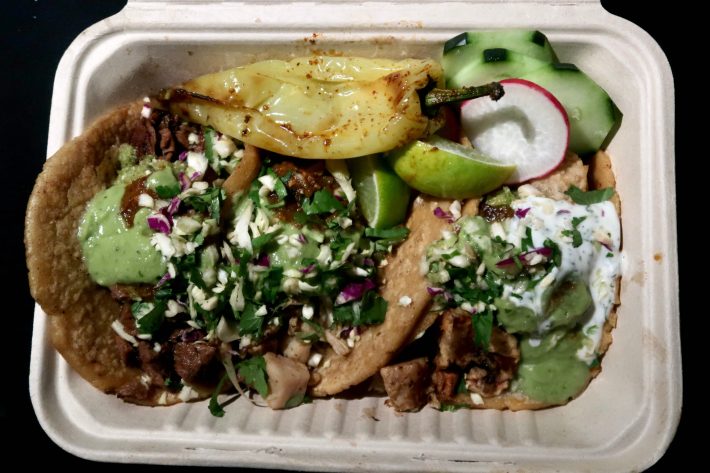
He was so inspired by the carrot dog’s potential to open up people to plant-based eating that he jokes Masaya as a concept practically came from the carrot dog’s inception. “I just thought it was something so clever that I don’t know if I created the brand for the dog or if the dog helped me create the brand.”
To take it a step beyond, Flores hopes to inject his cuisine of vegan street food with cross-cultural twists that speak to his L.A. upbringing, weaving communities and experiences together. Like the bahn mi tacos and curry tacos, he’s done at caterings to reflect his LA experience from growing up in San Gabriel to Lincoln Heights, Downtown L.A., and Compton.
“More of a mix and flux that is L.A.,” he says of the future of his food.
At the heart of it all, one thing remains clear, Flores is committed to the concept of threading together what’s between foods and cultures and people that bring people together. That’s what he brings to the table: a shared experience to leave a positive impact that extends beyond culture through jackfruit tacos and carrot dogs. Being vegan put that in perspective for him.
“It expands to a more global aspect: How to assist in having a positive impact on this planet outside of our culture, I felt like going vegan was the best way to do that,” he explains. Going vegan for Flores was the most holistic approach to better not only his physical health but also his mental and spiritual health.
And as a vegan, first-generation Chicano, who grew up loving shrimp tacos and now cooks his own version with mushroom, it boils down to seeing himself represented, too, in all his multifacetedness that this city brings.
“It’s about being no longer invisible.”
Find Flores and his holistic and nostalgic Masaya pop-ups this Thursday, Friday, and Sunday at Amara Kitchen from 6 pm to 10 pm and follow him on Instagram to go beyond.
